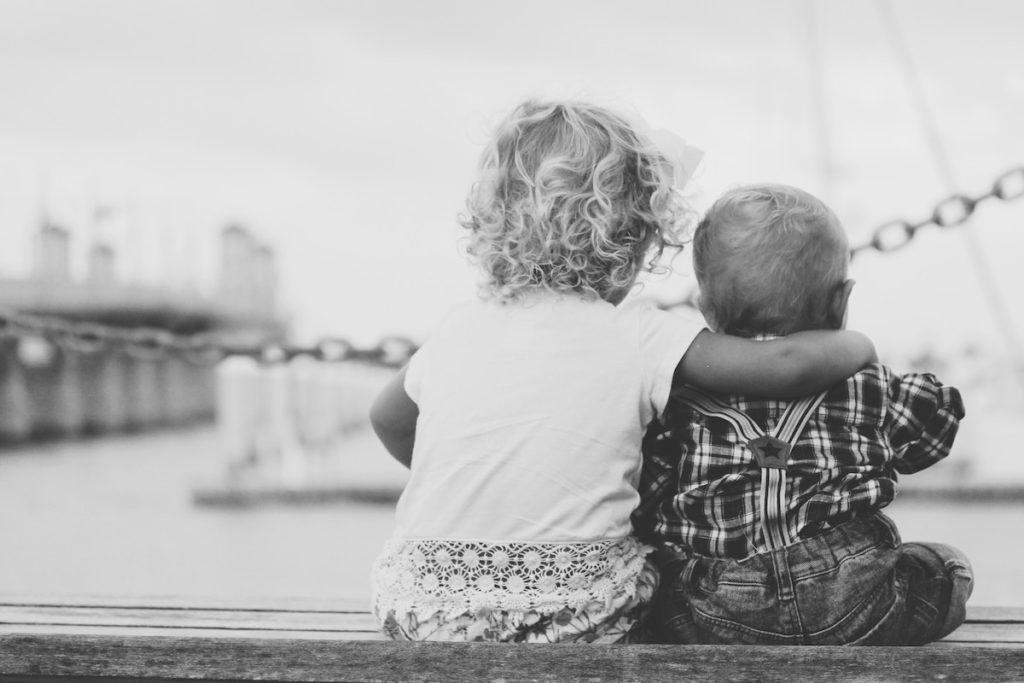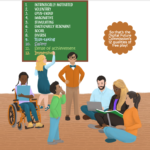
“Parents and teachers are sending kids really mixed messages about kindness…[a Harvard study a few years back reported that] middle school children thought their parents valued academic success over kindness. In fact, about 80 percent of children believed their parents were more concerned about good grades and their kids’ careers than whether they were caring towards others…Eighty percent. And the parents, on the other hand, they got surveyed, too. And they didn’t realize this. They were totally wrong about the message that they thought their kids were getting.”
from the podcast “Kindness Can Be Taught. Here’s How”
I’m listening to podcasts. I’m working my way towards beginning a Mindful Digital Life podcast by paying attention to podcasts focused on topics I care about. I listen to Nocturne, a podcast that explores the night because I met the host, Vanessa Lowe, at my local cafe and when I found out she hosted a podcast, I started listening. Vanessa’s husband Kent Sparling composes a lot of the music for the program. Vanessa is a great storyteller. The music is beautiful. Together they cast an evocative spell.
Recently, I’ve started listening to NPR’s Lifekit for Parents, a collaboration with Sesame Workshop. They have one series called Parenting: Difficult Conversations and another called Parenting: Raising Awesome Kids. This past week I listened to “Kindness Can Be Taught. Here’s How” in the Awesome Kids series with hosts Anya Kamenetz and Cory Turner, both education reporters and parents. I’ve been following Anya’s education reporting for years. She’s written several books and I’ve read most of them (DIY U, Generation Debt, The Test, and most recently, The Art of Screen Time).
This podcast is 31 minutes long…about how long it takes me to do the dishes that have built up throughout the day after several hours of focused work at my desk.
This was my favorite part of the program:
KAMENETZ: That’s our takeaway number 6 – kindness grows with sunlight.
TURNER: What do we mean by that?
AIJA SIMMONS: You have to raise the capital of kindness.
TURNER: Aija Simmons helps run the social and emotional programs for schools in Oakland, Calif. And she focused a lot on kindness when she taught elementary school.
SIMMONS: You have to point it out. You have to name it. You have to appreciate it when you see it.
KAMENETZ: For example, every day, she’d hold circle time. And a lot of times, she’d ask this.
SIMMONS: You know, what were some ways this week where your classmates were kind to you? Turn and share a moment where you felt someone was being really kind.
TURNER: Tom Lickona says it’s not just about celebrating kind actions. It’s encouraging kids to identify as kind people.
KAMENETZ: Yeah, because people are more likely to be kind if they see it as part of who they are.
TURNER: Yeah. This idea of taking special notice when people are kind to you – well, another word for that could be gratitude.
And then Cory shares how he does this with his two young sons.
TURNER: It’s not always easy. Sometimes, my guys don’t really want to do it. They just want to eat.
UNIDENTIFIED CHILD #1: Thank you for this breakfast and (laughter)…
TURNER: But we do it. The point of all this is to really carve out a time in each day for your kids and you to acknowledge – you know, we’re not self-sufficient. We’re not islands. We need other people, and other people need us.
You’ll find the link to the transcript on the left of the page if you prefer to read, but I recommend listening. It loses something in translation to text. Please note: Anya and Cory interview Scarlet Lewis, founder of the Jesse Lewis Choose Love Movement, and mother of Jesse who was murdered at Sandy Hook. The content in this podcast is deep. Create a good space for yourself to enter a profound and essential conversation about how to create a culture of kindness.

What I am reading
BOOK: Creating Compassionate Kids—Essential Conversations to Have with Young Children. Author Shauna Tominey guides us in having authentic conversations about a wide range of topics with our children from a young age, conversations that will lay the foundations for open and trusting conversations when our children metamorphose into tweens and teens.
BOOK: Your Self-Confident Baby—How to Encourage Your Child’s Natural Abilities from the Very Start. Author Magda Gerber. Founder of RIE (Resources for Infant Educators). A beautiful practice of learning to observe children to see them anew.
RESEARCH: “Less-structured time in children’s daily lives predicts self-directed executive functioning.”


